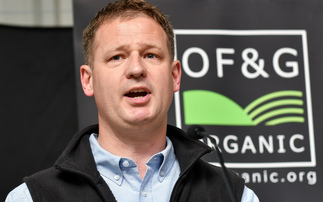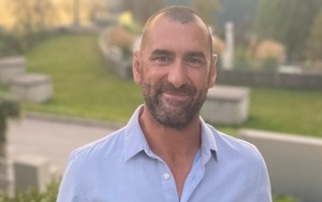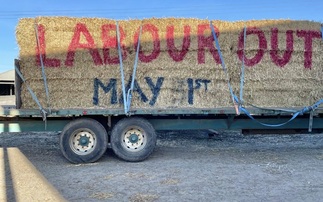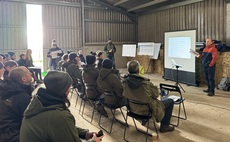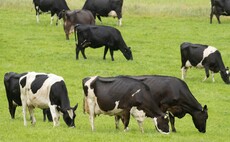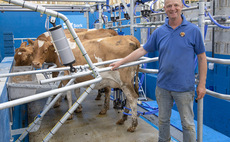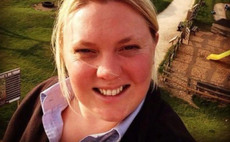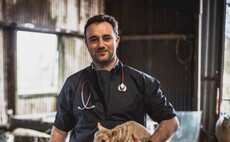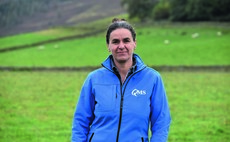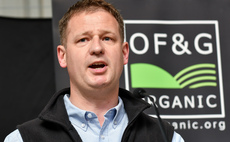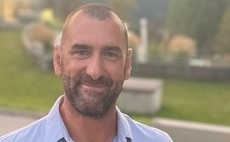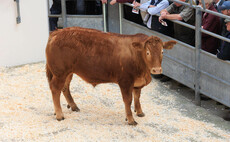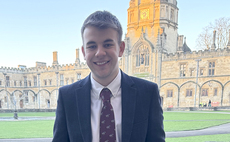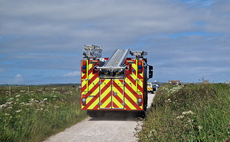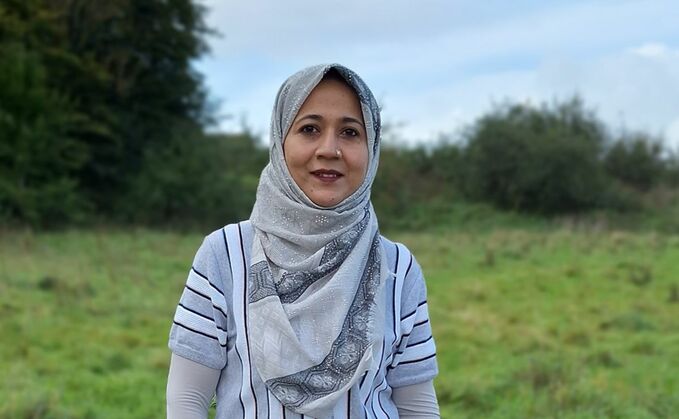
Dr Saba Amir
Nuffield Scholars have the ability to delve deeper into their interests and make a real change.
Here is a little more about each scholar, their farming backgrounds and what their scholarship will enable them to do.
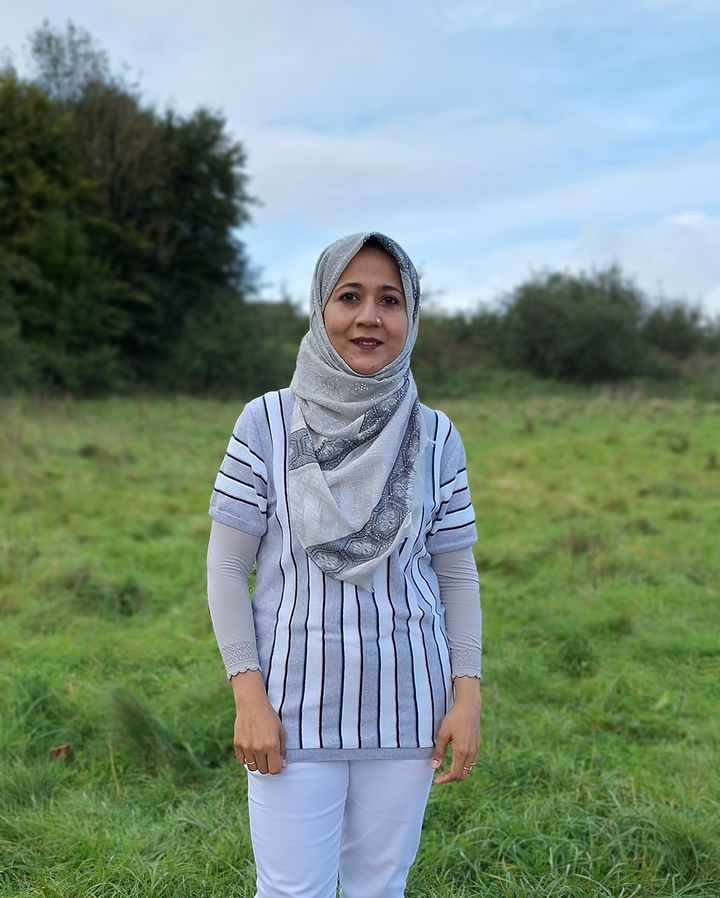
Dr Saba Amir
- Can calf with cow dairy farming become the future of the dairy industry?
Dr Saba Amir is a lecturer at Aberystwyth University as well as a knowledge exchange fellow for Farming Connect. Early cow-calf separation is a ‘contentious' issue in the public perception of dairy farming, so Saba hopes to visit producers around the world who are running successful calf with cow dairy systems. She will explore both the practical and economic considerations needed to make the system a success and seeks to understand how this knowledge can be effectively disseminated to both UK dairy farmers and the wider industry. To research this topic, Saba aims to visit USA, Canada, Scotland, Netherlands.
Generously supported by the John Oldacre Foundation
Laura Awdry
- Every calf has a value, but is every calf equal? Sustainable and profitable dairy beef production in the UK
Laura Awdry was born in New Zealand but farms in partnership with her husband on a 20-year Duchy of Cornwall tenancy which they took on in 2022. Rearing 500 calves annually on her own farm, she hopes to focus on dairy-bred beef production and believes that it can be part of the solution for sustainable and profitable farming. Laura wishes to visit New Zealand, Australia, USA, Ireland, Belgium, Holland and France to research dairy beef production models and understand how they could benefit multiple farming sectors within the UK. She will particularly focus on the role of genetics and access to future supply chains for dairy beef.
Generously supported by the Dartington Cattle Breeding Trust
READ ALSO: Nuffield Scholar looks at robots on large scale dairy farms
Wallace Currie
- Let's get Agricultural Education into the Tramlines
Wallace Currie is a lecturer at the Scotland's Rural University College with a particular interest in global food production, precision technology and agricultural communication. He is also the creator of the podcast, R2Kast - People in Food and Farming, which showcases how inspiring individuals have made their career in food and farming. Wallace is keen to see further growth in agricultural education in the UK, and hopes to explore how teaching methods from around the world can be combined with engaging and interactive methods of conveying agriculture to benefit both tertiary and higher education. To achieve this, he aims to visit the Netherlands, Japan, Switzerland and Singapore.
Generously supported by The MacRobert Trust
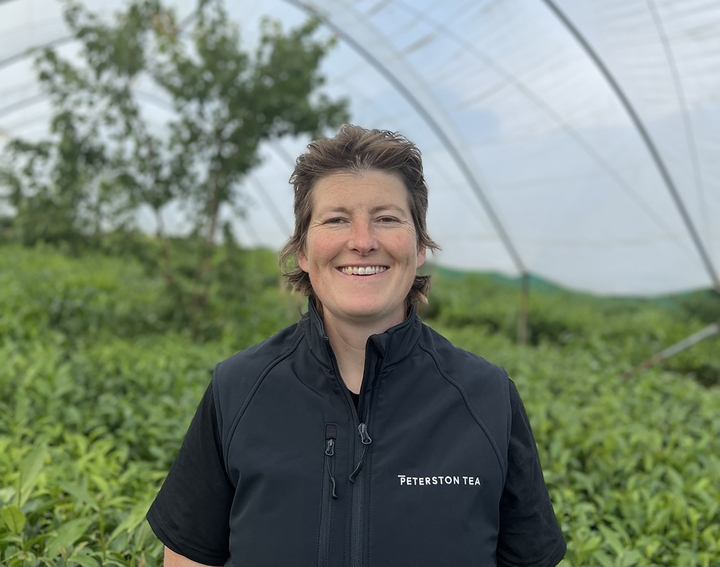
Lucy George
- Tea cultivation within agroecology - the development of a high value opportunity for UK farms
Lucy George owns a pick-your-own fruit farm near Cardiff, which she diversified in 2015 to incorporate tea production. The farm now specialises in organically certified speciality tea and premium kombucha production, and supplies many prestigious outlets around the world. The diversification into tea has been a lifeline for a small, previously struggling horticultural farm. Lucy believes further research is needed into how farmers can reliably establish tea in the UK as a high value diversification, integrated into a multi-functional, biodiverse landscape. To delve into this topic, Lucy wishes to visit Italy, France, South Korea, China and Japan.
Generously supported by Royal Welsh Agricultural Society
Jock Gibson
- Enhanced meat eating Quality from 100 per cent pasture and forage systems
Jock Gibson is a butcher and beef and sheep farmer based in Dallas, Scotland, with 250 head of cattle on a Pasture for Life assured beef system. He will explore grass and forage systems and understand how the animal's diet and nutrition affect eating quality. Jock also wants to learn how red meat consumption and personal well-being are linked and aims to pull all of his learnings together to establish how to produce excellent meat-eating quality from 100 per cent grass and forage diets.
Generously supported jointly by Royal Highland and Agricultural Society of Scotland and Worshipful Company of Butchers
Sophie Gregory
- What is the future for organic farming?
Sophie Gregory is an organic dairy farmer based in Dorset, farming 1,500 acres in partnership with her husband. They aim to farm in an environmental, social and sustainable way with collaboration, progressive ideas and community engagement at the heart of their business. With the rise of regenerative farming and plant-based products, Sophie aims to explore consumer understanding of organic and where it sits on the shelf. She will visit countries where organic is thriving and where it is losing its position, including South Korea, Taiwan, India, USA, France, Austria and New Zealand, to understand what the UK organic sector can learn.
Generously supported by The Trehane Trust
Liz Haines
- Neurodiversity in agriculture
Liz Haines is a director of a spring block calving dairy farm with her husband and two business partners, milking 360 cows in a New Zealand style grazing system. Meanwhile, with a previous career in health and social care Liz is interested in helping other new entrants and neurodiverse people to succeed in the industry. She believes there are significant numbers of neurodiverse individuals who have much to offer our industry but would benefit greatly from better understanding to achieve their potential. Liz plans to visit USA, Ireland, UK and Europe to explore how to support neurodiverse people to utilise their unique skills and capabilities, and create a vibrant, diverse workforce.
Generously supported by McDonald's UK and Ireland
READ ALSO: Interested in arable? Meet the Nuffield arable scholars
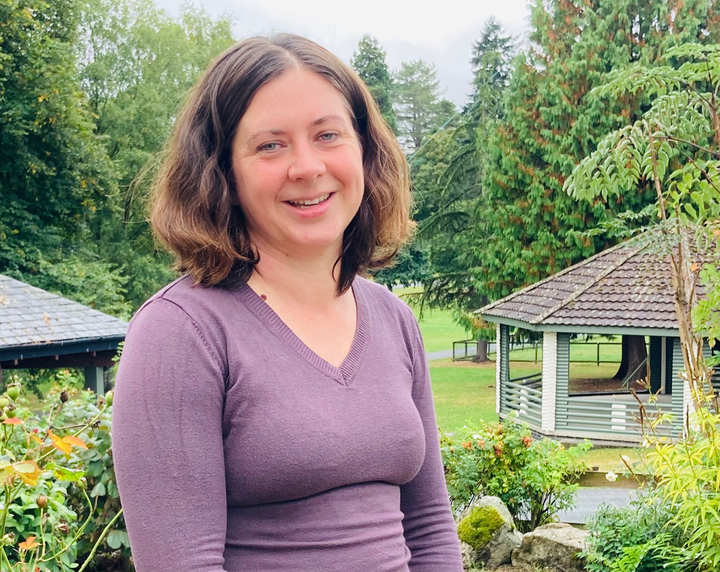
Dr Natalie Hepburn
- From farm to fork, from barn to brand; the models, advantages, and disadvantages of farm diversification
Natalie runs a smallholding near Cardiff, specialising in producing soaps, shaving products, and skin care products from goat milk. With many farms facing pressure to diversify in order to remain viable, Natalie would like to explore existing successful models. She aims to understand the key decisions and considerations required, while also exploring how the farm can maintain control of the supply chain. She will look at farms that have created a product or brand for diversification purposes, to learn about the advantages and disadvantages this has had on the original business. She hopes to spend most of her time travelling within the UK looking at farm diversifications as well as USA.
Generously supported by NFU Mutual Charitable Trust
Polly Hilton
- Elevating the value of and respect for fine cider to safeguard the future of orchards
Polly is the founder and cider maker at Find and Foster Fine Ciders, a small business which aims to reveal the potential of traditional Devon cider orchards by creating champagne-method ciders. Polly believes that the Fine Cider industry has untapped potential in the UK and is keen to learn more about how its value can be communicated to consumers. She hopes to achieve this by learning from the best cider makers and winemakers in the world about improving product quality, visiting France, Georgia, Switzerland, Northern Spain, and Brazil. Polly will also speak to other experts about transforming the reputation and raising the value of fine cider.
Generously supported jointly by the Worshipful Company of Fruiterers and Three Counties Agricultural Society
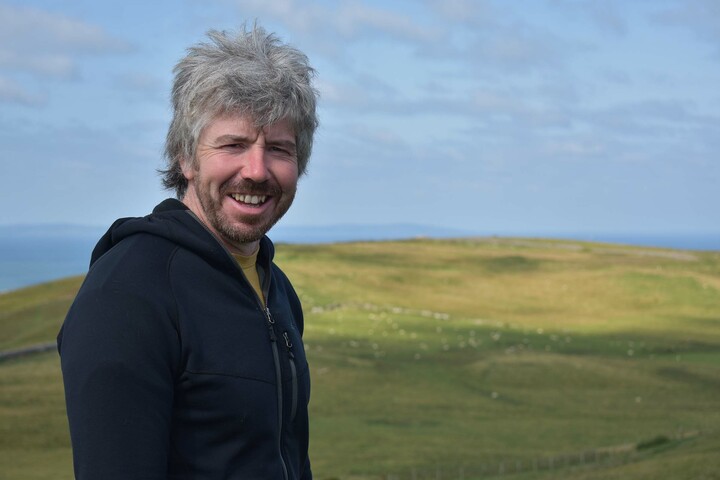
Dan Jones
- Upland sheep farming, finding the balance: production, conservation and climate change
Dan is a tenant farmer of the National Trust at Parc Farm on The Great Orme, a unique limestone headland that is home to rare flora and fauna. It is a Site of Specific Special Interest, Important Plant Area and Special Area of Conservation and visited by over 600,000 people a year. During his study he would like to focus on the potential to maximise the food production and profitability of the upland sheep farm, while enhancing nature conservation and considering climate change. There are a vast range of upland sheep farming systems across the world that he would like to visit, experience and learn from, including in the UK, France, Switzerland, USA, Argentina and Chile.
Generously supported by the John Oldacre Foundation
READ ALSO: Dan Jones: In Your Field - 'the biggest challenge is simply leaving the farm'
Hattie McFadzean
- Enhancing the resilience of the UK Dairy Sector: how do we prepare for increasingly volatile climate conditions?
Hattie is a senior sustainability consultant at Promar International, specialising in the life cycle analyses of livestock farms, carbon accounting, and building pathways to net zero. She strongly believes that enhancing the transparency of information and face-to-face support for farmers is key to developing the resilience of the sector. She aims to gain insight from farmers and stakeholders operating under climate conditions which may be experienced by the UK in the future and explore resilience techniques relevant to the UK. Hattie hopes to map out what this could mean for the industry, focusing on essential management techniques, best practices, and key comparisons that can ensure the sustained success of the dairy sector. She hopes to visit the Netherlands, Mexico, the US, Cuba, and India.
Generously supported by AHDB
Gwion Parry
- The disconnection between eating quality in the UK beef industry - from farm to fork
Gwion works as an ultrasound scanner and is in the process of taking over his family's Gwynedd-based farm, with a goal to concentrate on scanning for beef marketing purposes and develop his own eating quality assured beef brand. The aim of the study is to identify why the UK do not value beef or beef animals for their eating quality as is done in USA, Australia and Japan. Believing these nations are at the forefront of beef marketing, he aims to learn more about carcase grading technology, how farmers are paid, the history of their grading systems and future plans to ensure the quality is sustained. Gwion hopes to travel to the USA, Japan, Australia, and South America.
Generously supported by Royal Welsh Agricultural Society
Ifan Roberts
- Inspiring the next generation of dairy entrepreneurs
Ifan runs a 1,000 plus cow dairy unit in Leicestershire and after working in the dairy industry for more than 10 years, he has identified a need for talent to drive dairy businesses forward. With positions often going unfulfilled, he wishes to find out what could be done to change this by exploring methods which can entice new talent into the dairy industry. Ifan wishes to visit Ireland, New Zealand and China to learn what other operators are doing to cultivate the next generation of farmers.
Generously supported by The Trehane Trust
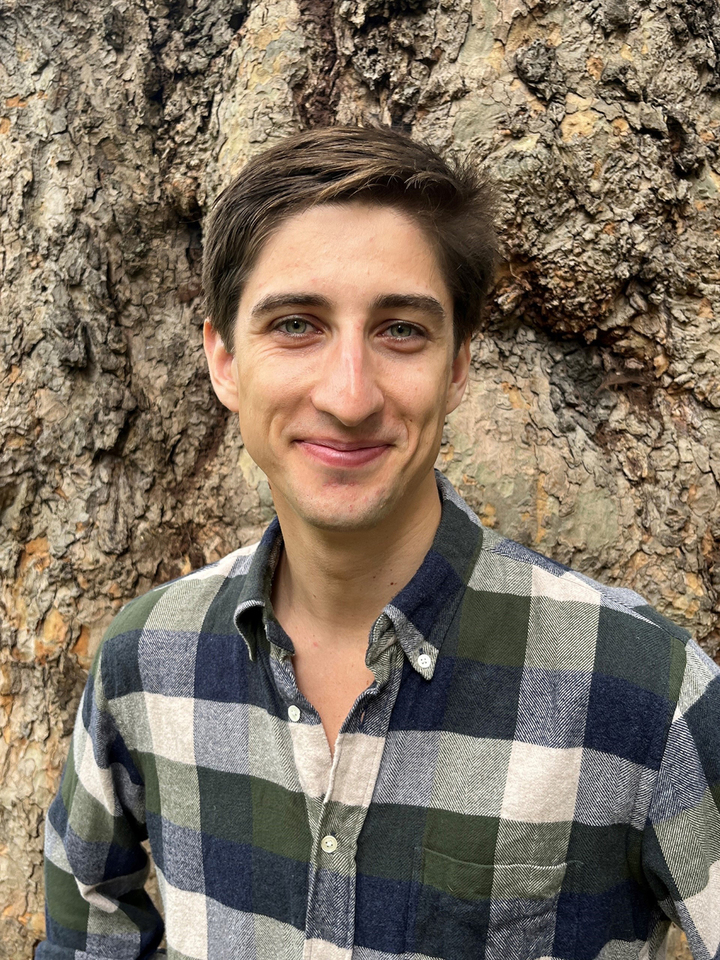
Tom Scrope
- Growing together: Exploring new ways of farmer knowledge exchange to secure stronger soils
Tom Scrope is the co-founder of Soil Benchmark, a digital platform which aims to help farmers share best practice on soil management with one another. As part of his study, he hopes to understand how other countries have developed a collaborative approach to sharing information between farms and to see how their learnings can inform improvements to soil health. He is hoping to learn from world-leading farmers, agronomists, entrepreneurs, and academics in France, Australia and the Netherlands.
Generously supported by Yorkshire Agricultural Society
Dan Smith
- Generation regeneration. We need you.
Dan is the farm manager at Jamie's Farm, a national charity which invites young people to take part in a residential programme on their working livestock farm. He manages the farm under regenerative, agroecological principles focused on soil health and biodiversity, and is proud to farm carbon negatively on a low input system. With agriculture facing a period of change, Dan believes that now is the time to cultivate new interest in the industry. During his scholarship, he would like to understand how to encourage new entrants, attract young people from diverse backgrounds and keep the current capable workforce. He aims to visit Europe, the USA, Canada, Australia, New Zealand, and Africa.
Generously supported by McDonald's UK and Ireland
Jamie Stokes
- Doing more with less - learning from the small to teach the big
Jamie manages his family's 1,000 ha arable farm in Cambridgeshire, alongside several diversifications including a Christmas tree retail business and an equine livery yard. He has become concerned by the continued reduction of pesticide efficacy and innovation, and the impact this could have on the long-term viability of conventional arable systems. In response to this, he aims to understand more about the techniques, technology and mentality of urban farming and explore how these could be applied to conventional UK arable systems. Jamie would like to visit farmers and experts in the UK, Japan, Singapore, Europe, and the USA
Generously supported by the Worshipful Company of �������� with Savills
Amy Stoner
- UK Food Security: A forward-thinking approach to ensure resilient fresh produce supply chains
Amy Stoner is a food technologist and quality assurance professional working in the food manufacturing sector. She has an interest in building supply chain resilience to ensure food safety and quality and would like to further understand the challenges facing fresh produce supply chains now and in the future. She will explore long-term strategies to ensure produce security in the UK by visiting experts and businesses across Europe and Asia.
Generously supported by The Food Chain Scholarship
David Tavernor
Practically and profitably diversifying your farm business with black soldier fly production
David runs his own business, Fly2Feed, producing black soldier flies to create protein feed for chickens and fertiliser using food waste. Having started his business following a trip to Mexico, he is looking forward to travelling more during his scholarship to expand his knowledge of insect farming. David hopes to understand how UK farmers could incorporate black soldier fly production into their existing operation to produce their own feed or fertiliser and add value to farm by-products. He hopes to visit Africa, Europe, and North America.
Generously supported by Alan and Anne Beckett
Sam Watson-Jones
Per Plant Farming, Artificial Intelligence and the Future of Arable Farming.
Sam believes that there is an enormous opportunity for Artificial Intelligence (AI) to transform farm decision-making to improve productivity and profitability. He co-founded the Small Robot Company, an agri-tech business that combines precision robotics with AI to facilitate the ‘Per Plant Farming' farming system. The system encourages farmers to use technology to move away from blanket applications of chemicals and fertiliser. During his study, Sam will explore the potential for Per Plant Farming internationally, as well as further his understanding of farmer mindsets towards technology adoption and change. He would like to travel to North America, China, India, South America, Australia and New Zealand.
Generously supported by Elizabeth Creak Charitable Trust (a Clyde Higgs Scholarship)
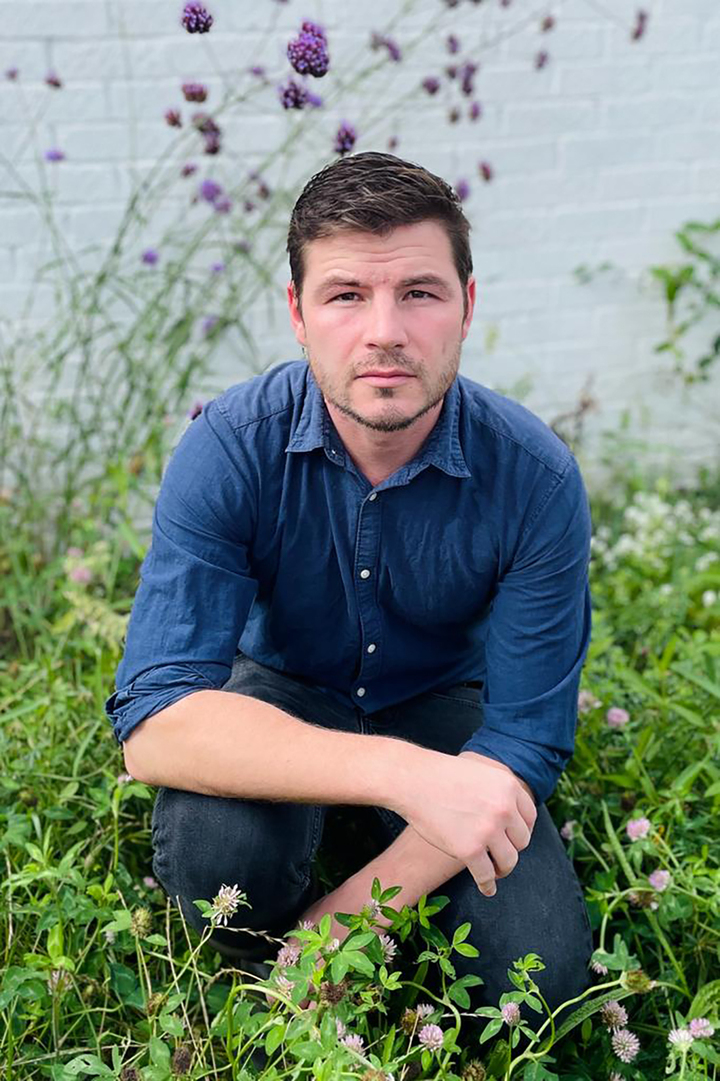
Cormac White
- Developing a sustainable grazing-based small ruminant dairy system suitable for new entrants with alternative supply chain models
Cormac is a farm vet based in Somerset with an interest in sheep and goat dairying. With ambitions to set up his own small ruminant dairying business, he is keen to explore the viability of grazing-based systems for new entrants. He hopes to explore sustainable business models for small ruminant dairying in both Europe and New Zealand, and he aims to understand how they could be applied in the UK to address the barriers faced by new entrants.
Generously supported by The Thomas Henry Foundation
Dr Annie Williams
- Minerals for ruminants - are we getting it right?
Dr Annie Williams is a business development manager at the Centre for Innovation Excellence in Livestock, with a keen interest in minerals and the role they play in ruminant nutrition. During her scholarship, she hopes to explore the many complexities around mineral nutrition and understand evidence-based practices to provide the best advice for farmers. She will also seek to learn about the global differences in supplementation, on-farm advice and diagnostics within the context of sustainability, nutrient utilisation and regenerative agriculture. Annie hopes to spend time in New Zealand, the USA, Ireland, and the Netherlands.
Generously supported by The Richard Lawes Foundation
Harold Winslet
- For Peat's Sake! Do we need a new approach to peatland agriculture?
Harold is the future farming manager at Cambs Farms Growers, a large fresh produce provider operating in the East Anglian Fens. He hopes to further develop his understanding of soils and the complexities of peatlands. During his scholarship, Harold will examine the possibilities of alternative methods of production on peatlands, including paludiculture (farming on rewetted peat) and rotational wetting, and explore if techniques used internationally could be utilised in the UK. He would like to visit Northern Europe and Southeast Asia.
Generously supported by Royal Norfolk Agricultural Association
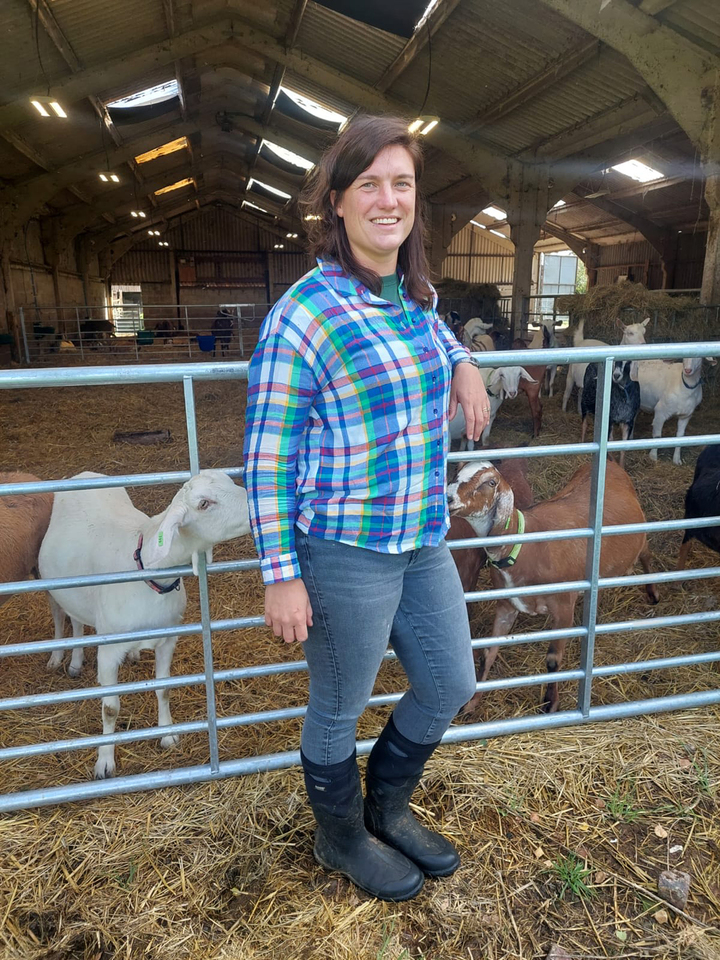
Rachel Yarrow
- The dream British Cheese Goat: could a pasture based dairy goat system ever work at scale in the UK?
Rachel runs Oxfordshire-based Norton and Yarrow Cheese, an artisan goats cheese business, alongside her partner. After successfully securing a farm tenancy, they have grown to a 200-head herd and produce multi-award-winning cheeses. Rachel hopes to develop their goat herd and farming system so that it is profitable, viable and environmentally sustainable. She is also interested in how the UK goat dairy sector can ‘break the mould' and will explore what we can learn from systems across the world and how these could be applied in the UK. Rachel would like to travel to France, Spain, Italy, Greece, and Germany.
Generously supported by Central Region �������� Trust








